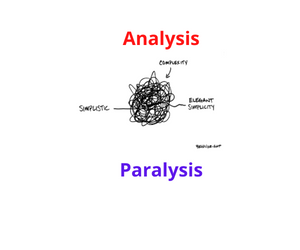“Smart contracts” are another “in” term used in the same space as Blockchain and DLT. What are they?
The theory has it that the Blockchain enables the terms of an agreement between two parties to be so well captured and enshrined in an electronic agreement, that over the lifecycle of the instrument, all the things that need to happen will magically happen without being touched by the human hand.
One term used to explain how they work is: “If, then”. In other words, if a specifically defined event occurs, then the agreed next action comes to pass. The good folks at Blockgeeks have put together a useful primer on this.
The prospect of oh so much automation is one of the reasons that senior bank leaders have recently been quoted on the topic of how banking jobs will certainly change and many may disappear altogether (cf. ex Citi CEO Pandit, Cryan at DB).
Automation is not new: there are some new buzzwords doing the rounds: RPA for robotic process automation, Robo-Advisors, robotics. As Keith Richards would put it: “New song, old story”. In financial services we have been striving for STP, so called straight through processing, via automation for a long, long time. Our ability to deliver on that goal has always depended on data quality: i) the accuracy of what is captured, for example the unique identifier for a security, ii) the availability of a service to tell us what we need to know, for example the price of that security and iii) the availability of that unique identifier as part of the service. It can go very wrong. For some good entertainment I recommend an old post for a quick read on the train: “Paying for Stuff That You Don’t Use Properly“.
It will all be about data quality and structure: Let’s use the simple analogy of a flight delay. With all the chaos caused by Ryanair cancelling flights and Monarch going bankrupt, insurance is a greta place to start. The French insurer AXA is introducing smart contracts for flight-delay insurance; the novelty being that the whole monitoring and payout is automatic.
To use a Smart Contract, we would need a few bits of data:
The insurance: Am I insuring a particular flight? Am I insuring any flight I take or just flights I nominate, for example by going on to a portal and saying: “I am travelling on flight X on day Y”
The flight reference data: if it is a specific flight and day, then AXA’s service needs to source all the flight options I could have or it needs to have me submit some travel details, or perhaps to share my boarding card
The outcome: A means to identify the result. An official publication that says BA 8760 on Mon Oct 2 landed at 11:25 rather than 08:25
The payment instructions: AXA would need to either store my payment details, which might change over time, so ideally they would get them from a trusted repository or send to me using an advanced payment method such as TWINT in Switzerland, which requires only that AXA know my mobile number
The exceptions: for some kinds of delay or cancellation, the carrier rather than any insurer is on the hook. This is somewhat central to the on-going Ryanair fiasco.
Data Asset Lifecycle Servicing is a discipline which will be needed: In banks we have a known discipline today called Asset Servicing. Making sure dividends and interest get paid, coordinating corporate actions when shareholders have a choice of doing something. Over and above the general need to have data quality assurance, ensuring things are right the first time, that assurance role is going to have to cover the lifetime of smart contracts; ensuring the right terms have been captured, checking for exceptions over the lifetime of the contract.
Integration will be necessary: New smart contract products will not always work in isolation. Let’s extend the analogy on travel. As a family we have a really wonderful worldwide year round product from the TCS in Switzerland, which is the equivalent of AAA in the US or the AA in England. it covers missed flights, lost bags, repatriation and many other things. I have used it once or twice; quick phone call, some scanned docs and money was paid.
To turn that product digital and in to a smart contract, TCS would have to have some way of my sharing my boarding cards, probably as I go through security, so it is clear there is a flight I am supposed to take. All that integration is doable, but might not be worth it.
Lessons to be Learned
The Blockchain generally and Smart Contracts specifically offer the prospect of making some things a lot easier, with in banking and other industries.
But, and it is a big one, we should beware of what Alan Greenspan called “irrational exuberance”. Just because we have this new thing called smart contracts does not mean the whole world will change.
In the same way, just because we have Data Scientists does not mean they can derive oodles of new, stunningly valuable insights. Why? Because 80% of their time is spent scrubbing and shaping data.
Data quality is the either the root of all evil or the fountain of all good. The stats prove that is an 80:20 game.
About the Author: I help banks master their post trade processing; optimising, re-engineering, building.
I understand the front-to-back and end-to-end impact of what banks do. That allows me to build the best processes for my clients; ones that deliver on the three key dimensions of Operations: control, capacity and cost.
Previous Posts
Are available on the 3C Advisory website, click here.
Publications
The Bankers’ Plumber’s Handbook
Control in banks. How to do operations properly.
For some in the FS world, it is too late. For most, understanding how to make things work properly is a good investment of their time.
My book tries to make it easy for you and includes a collection of real life, true stories from 30 years of adventures in banking around the world. True tales of Goldman Sachs and collecting money from the mob, losing $2m of the partners’ money and still keeping my job and keeping an eye on traders with evil intentions.
So you might like the tool kit, you might like the stories or you might only like the glossary, which one of my friends kindly said was worth the price of the book on its own. Or, you might like all of it.
Go ahead, get your copy!
Hard Copy via Create Space: Click here
Kindle version and hard copy via Amazon: Click here
Cash & Liquidity Management
An up to date view of the latest issues and how BCBS guidance that came into force from Jan 1 2015 will affect this area of banking. Kindle and hard copy.
Hard Copy via Create Space: Click here
Amazon UK: Click here
Amazon US: Click Here
Share on:




